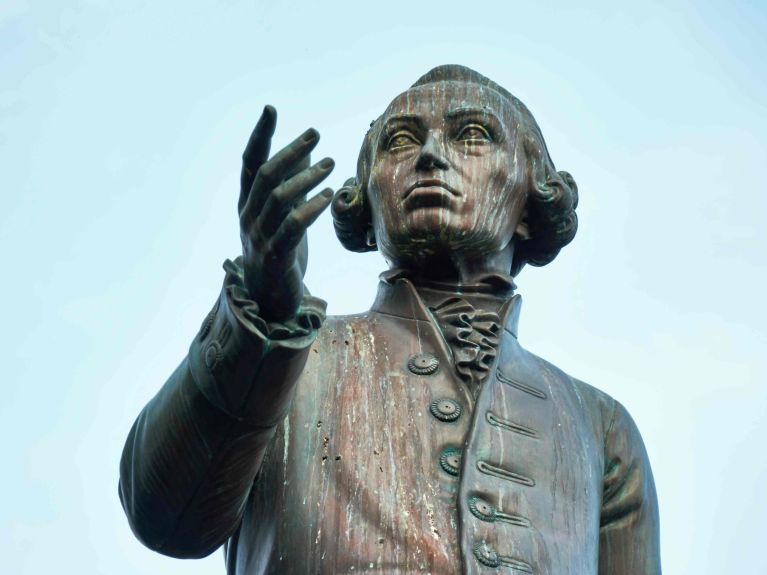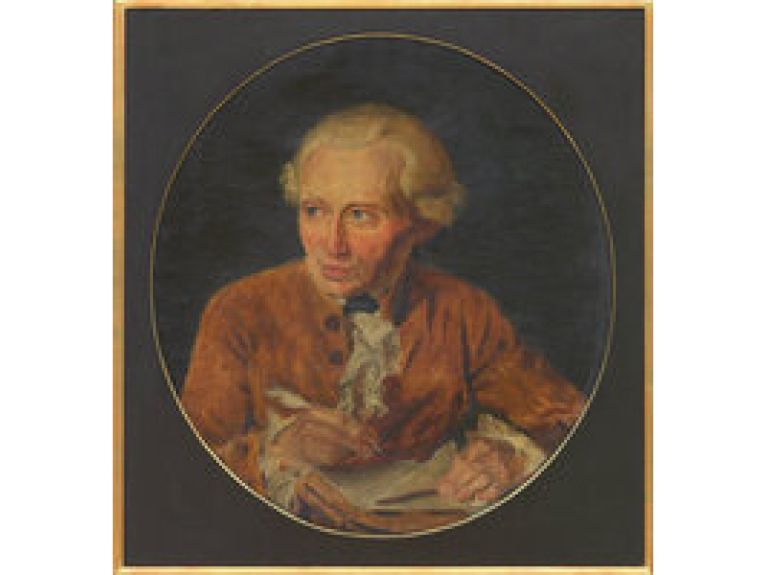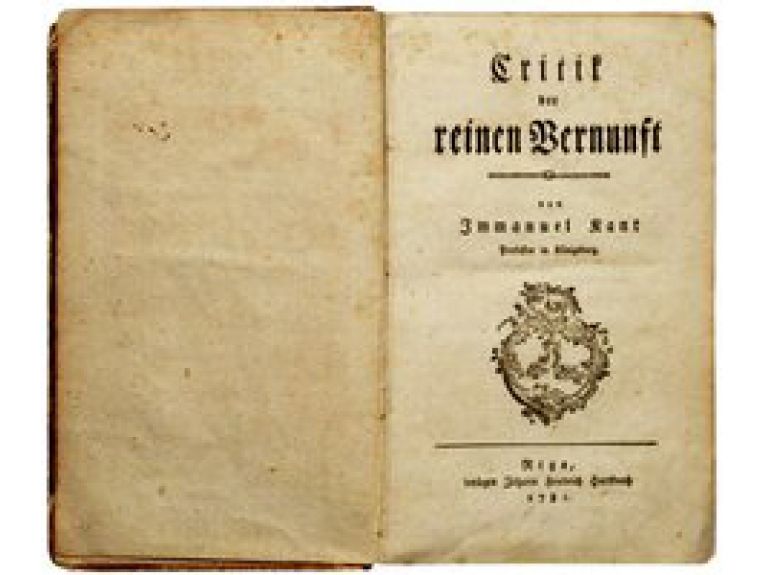Immanuel Kant: The Philosopher of the Enlightenment
Immanuel Kant changed the way people think all over the world. The works of the German philosopher are still relevant today, 300 years after his birth.

Immanuel Kant changed the world without having seen much of it. The German philosopher virtually never left his home city of Königsberg, yet his writings changed the way people think all over the world. He is regarded as one of the most important philosophers of the Enlightenment era, and for many people his works have lost nothing of their relevance to this day. The 300th anniversary of his birth in 2024 is therefore being commemorated in Germany with major exhibitions, numerous events and a special ceremony.

Immanuel Kant was born in the East Prussian city of Königsberg on the Baltic Sea on 22 April 1724. Renamed Kaliningrad, the city became part of the Soviet Union after the Second World War and today is a Russian exclave between Poland and Lithuania. In Kant’s day, Königsberg was a very open city with an outstanding university, says Agnieszka Lulinska, curator of an exhibition at the Kunsthalle in Bonn to mark the 300th anniversary of the philosopher’s birth. Kant taught at the university as a professor of logic and metaphysics. “Though Kant did not get away from Königsberg very much, he got the world to come to him,” says Lulinska.
In his home city, he wrote works that remain seminal to this day. “Kant changed the way people thought,” explains Thomas Ebers, likewise a curator of the exhibition at the Kunsthalle in Bonn. There were four key questions that the philosophy devoted himself to in his writings: What can I know? What ought I to do? What may I hope for? What is man? He provides answers, for example in his best-known work “Critique of Pure Reason”, which is regarded as a milestone in philosophical thought.

Many of Kant’s ideas remain just as relevant today - such as the following, which is probably his most famous statement: “Have the courage to use your own reason.” Marcus Willaschek, a philosopher and Kant expert at Goethe University Frankfurt, believes this conviction to be Kant’s most important legacy. It means realising “that we are responsible and cannot delegate the responsibility,” Willaschek said on German television station ZDF. What is more, he adds, Kant’s famous question is “What ought I to do?” and not “What can I complain about?”.
Have the courage to use your own reason.
Anyone who critically engages with Kant nowadays should not ignore the philosopher’s racist remarks, however. A research project at the University of Jena is exploring the question of racism in works of classical philosophy. Kant indeed made racist remarks, but did so within the context of his time, said project leader Andrea Esser in a Deutschlandfunk interview. She emphasised that her research was not about judging individuals but about understanding “how we should deal with this legacy”.
In future, Germany’s first Kant museum will also commemorate the “global thinker”, who was nearly 80 when he died in Königsberg on 12 February 1804. To mark the 300th anniversary of his birth, the first ever permanent exhibition about Kant, probably “the most important thinker of the Modern age”, is being created at the East Prussian state museum in Lüneburg And Kant is still sparking debate to this day. In 2024, for example, the writer Daniel Kehlmann and Omri Boehm, a philosopher who teaches in New York, jointly published “Der bestirnte Himmel über mir – Ein Gespräch über Kant” (The starry sky above me - A conversation about Kant), in which they seek important answers from Kant to topical questions. Kehlmann, who studied philosophy himself, said about Kant’s impact: “One of the greatest intellectual revolutions there has ever been in the history of our genre. That was Kant.”


